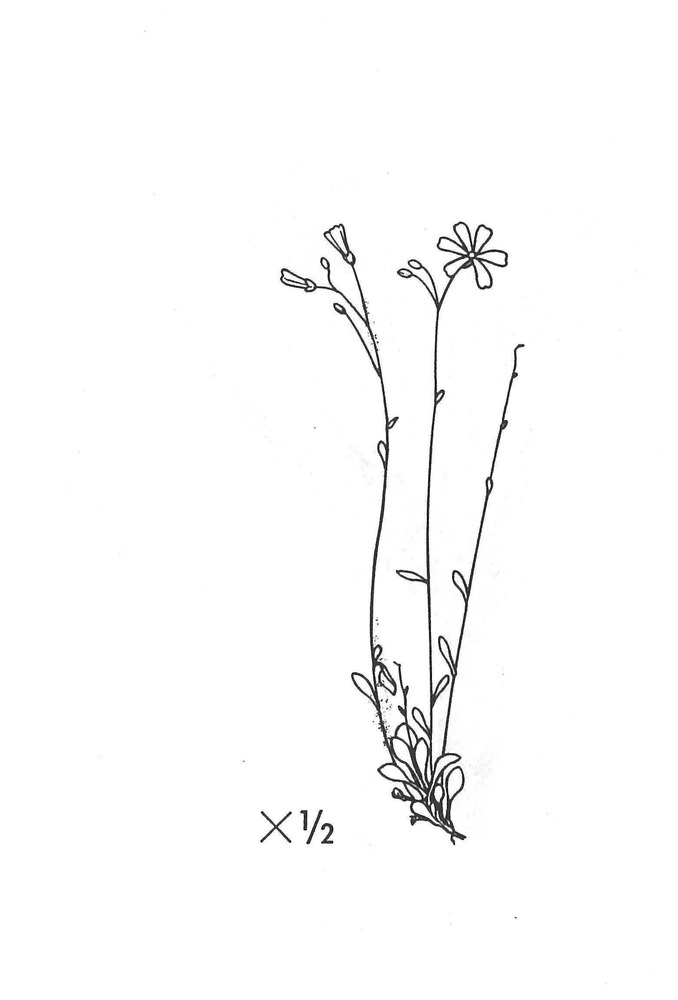| Claytonia parvifolia subsp. flagellaris (Bong.) Hult. | |||
| |||
| Family | Portulacaceae — APG family: Montiaceae | ||
| Synonyms | Claytonia flagellaris, Claytonia flagellaris Bong., Montia flagellaris Robins., Claytonia parvifolia var. flagellaris (Bong.) R. J. Davis, Claytonia parvifolia, Montia parvifolia subsp. flagellaris (Bong.) Ferris. | ||
| Description | Plant with branched, fleshy rootstock; basal leaves obovate, with broad, scarious base, fleshy; stems decumbent or ascending, often with bulblike buds in the axils; stem leaves several, alternate, ovate to rhombic, petiolated, reduced in size upward; flowers in racemes at ends of branches; sepals rounded, ovate, up to 4 mm long; petals truncate or emarginate, white or pink, up to 15 mm long. | ||
| Ecology | Wet places. |
This is a digital representation of Eric Hultén’s ‘Flora of Alaska and Neighboring Territories: A Manual of the Vascular Plants’, which was published by Stanford University Press in 1968. The book was digitized by C. Webb (at UAMN) as part of the Flora of Alaska project, with funding by the US NSF (Grant 1759964 to Ickert-Bond & Webb), and with permission of Stanford University Press. Data and images © 1968 Board of Trustees of the Leland Stanford Jr. Univ. Usage licence: Creative Commons BY-NC-SA 4.0. NB: You may find OCR errors; please refer to the hard-copy if in doubt.
